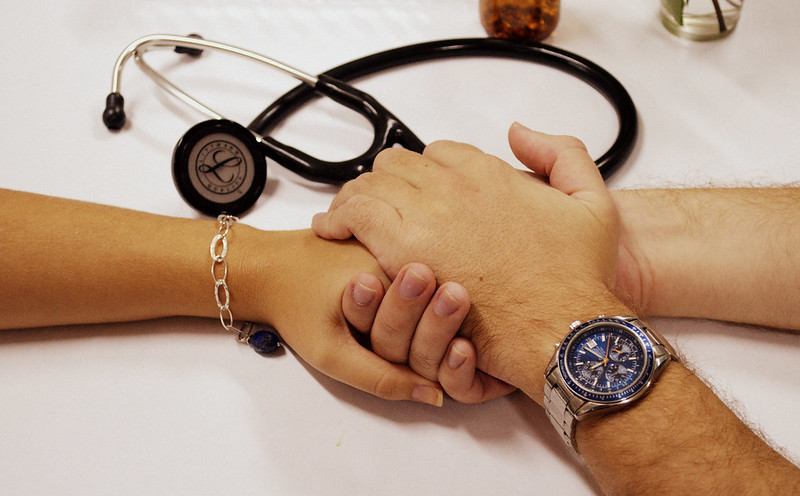On September 29, 2021, my world started to unravel. My first anatomy lab as a medical student had just begun. I stepped foot in the cadaver lab where the pungent odor of formaldehyde clung to the air, and I was overflowing with eagerness. It was about 3 p.m., and I noticed a call ringing through on my cell. I didn’t think much of it, and I hit “decline,” choosing, instead, to focus on the anatomy material I had to learn. But then, the phone rang again. Reluctantly, I answered this time and the lady on the other line was from a hospital in Sanford, Florida. She proceeded to inform me that my father was in the hospital, the victim of an accidental overdose.
My body went numb. The same room that I was so excited to be in just minutes prior, now felt cold and dark. I stared blankly at the cadavers before me, knowing that my life had just changed forever.
That night, in Miami, about a four-hour drive from Sanford, I anxiously waited for updates from the hospital. As my parents had separated when I was very young, I was the oldest child and health care surrogate for my father. Twenty-three years old at the time and barely a month into my medical school training, I felt hopeless and scared.
The next day came, and I continued to attend classes while receiving brief updates from the hospital every few hours. These interactions were cold and clinical. I longed for understanding and compassion from the healthcare providers on the other end of the phone, but my interactions were limited to fleeting exchanges. I was only met with stark facts and difficult decisions.
By Friday night, my father had been on life support for nearly 48 hours. There were no signs of life. It was time for me to make the heart-wrenching decision I had dreaded each second for the past two days.
On Saturday morning, I stood at the hospital, surrounded by a crowd of extended family. Only my sister and I were allowed past the sliding entrance doors due to COVID-19 protocols. I was escorted to the hospital chapel, where I had been told that I was going to meet with the treatment team. The small room, with walls covered in stained glass and dim lighting, was symbolic of my feelings. From within, a relentless unease gripped me, a profound fear that left my body frozen with anxiety. I still visualize that room and exactly where I sat, awaiting answers.
Finally, the critical care doctor working with my father entered the room to meet with me. His demeanor was impenetrable. He first said that he was sorry and that they had done the absolute best they could for Dad. He said that they had run “all the tests,” and at this point it would be best to take him off life support when I was ready. He asked if I had any questions, offered his condolences once more, and exited the room.
I was angry. I was angry at him, I was angry at the situation I faced, and angry at the world. The critical care doctor never sat down, and that bothered me. The room was lined with benches. He could have sat anywhere he wanted. I yearned for a deeper connection, a shared understanding of the horror I was living.
I lost hope in Medicine. I had never felt so alone and isolated. If this was how doctors treated patients and their families, I wanted out. I had only been in school for a month, I could turn my back on medicine, and I wanted to.
This nightmare became a turning point in my medical training. I was determined to demand more from myself. Life as a physician will be stressful. It will be challenging, and many days will break me down. Regardless of the circumstance, patients and their families deserve empathy. They deserve raw emotion and the gift of time.
No matter where this journey in medicine takes me, I am always guided by this experience and await the time when I will be on the other side. It is my hope that I can make these impossibly difficult moments therapeutic for patients and their families, but also for myself.
As one light is lost, another is ignited. In the same hospital that I was brought into this world, my father left this world. Each day, I carry his memory with me, fueling my purpose to make a difference in the lives I touch.
Image credit: “DSC_0250” (CC BY-NC-ND 2.0) by aagelaki

